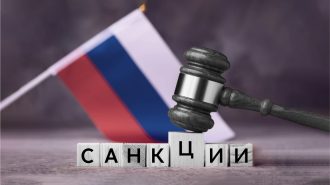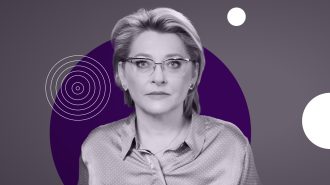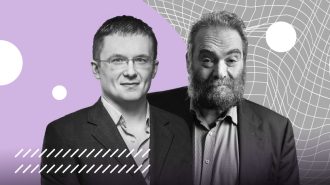T-invariant has repeatedly described how the Ministry of Education and Science and the leadership of the Russian Academy of Sciences are destroying the Institute for Information Transmission Problems (IPPI RAS). The demonstrative cancellation of the contract with the head of the institute, Andrei Sobolevsky, ignoring the opinion of scientists, led to a conflict between the scientific staff and the new directorate, the departure of a number of employees to MIPT, and the appointment of Dmitry Repin, a scientist with a dubious reputation, as deputy director. The Academic Council of IPPI has recently been headed by Dissertnet members.
Science policy
The redistribution of the market for the publication and distribution of academic scientific journals has led not only to serious delays in the publication of scientists' works, but also to Russia's self-isolation in the global market of scientific periodicals. By the beginning of December 2024, almost 75% of Russian academic scientific journals have not gone to press on time. This is the price of striving to publish scientific journals with a "Russian identity" and without foreign influence. T-invariant tells us what has already happened to Russian scientific periodicals and what else may happen to them.
Viktor Sadovnichy, the 85-year-old rector of Moscow State University, has been reappointed for a seventh term. This is not quite a typical situation: today the average age of a rector is under 60. T-invariant has studied the biographies of the heads of Russian universities in detail and realised that the problem with the rector corps is different: it is remarkably monotonous, as if they have specially selected people according to the average statistical pattern. Both the rector of Moscow State University and the heads of unremarkable regional universities have similar biographies and typical careers.
St. Petersburg State University was the first Russian university to ban its employees from publishing in international open access journals published by Elsevier. There are good reasons for this: as Elsevier told T-invarinat, the funds received from Russian authors are indeed sent to Ukraine.
A recent article by a group of American professors on the introduction of DEI into university practice in the United States has caused a wide resonance. To what extent can DEI be considered a purely American phenomenon, and to what extent has it been assimilated by academic communities in other countries? Germany is a curious example. This is the subject of an article prepared for T-invariant by Alexander Libman, Doctor of Economics, Professor of Russian and East European Politics at the Free University of Berlin.
In early September, it became known that Dmitry Repin, who previously held the position of Advisor to the Rector of the Russian Academy of National Economy and Public Administration, was appointed Acting Deputy Director of IPPI RAS. The appointment took place against the background of the ongoing public conflict between the scientific staff of the institute and the recently appointed acting director of IPPI Maxim Fedorov. T-invariant tells what is known about the new administrator of the institute.
The DEI ideology is diversity, equity, inclusion. What will happen to science if DEI principles win? T-invariant talked about this with one of the authors of the article “Politicizing science funding undermines public trust in science, academic freedom, and the unbiased generation of knowledge”, professor of biomedicine at Northwestern University in Chicago Igor Efimov.
Academicians turned to Vladimir Putin with a proposal to head a new body of the Russian Academy of Sciences - the Board of Trustees. But not everyone was able to vote for this decision. FSO employees blacklisted more than twenty scientists and did not allow them to attend the General Meeting of the Russian Academy of Sciences.
What could be the consequences of the break with CERN for Russian high-energy physics? T-invariant's questions were answered by the co-founders of the free online community "Dissernet" - physicists Andrei Rostovtsev and Andrei Zayakin.
The Reforum has published five tasks for the restoration of Russian science, proposed by T-invariant editor-in-chief Olga Orlova.
Why did the Higher School of Economics find itself in the worst position among all the new famous universities that emerged in post-Soviet Russia? At what point did the era of solidarity with state ideology begin at the university? Was the pressure on Yaroslav Kuzminov pressure on the university itself or on the head of the Central Bank of the Russian Federation, Elvira Nabiullina? What are the reasons and consequences of including the HSE on the sanctions list? Explains former vice-rector of the National Research University Higher School of Economics Andrei Yakovlev.
G.A. Gamow award, established by the Russian-American Association of Scientists (RASA-America, Russian-American Science Association) in memory of the outstanding Russian-American physicist, Professor Georgy Antonovich Gamow (1904-1968) for 2023 is awarded to Andrei Zorin, professor at the Oxford University (The United Kingdom) and Victor Chernozhukov, professor at the Massachusetts Institute of Technology.













